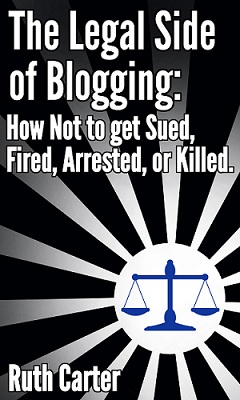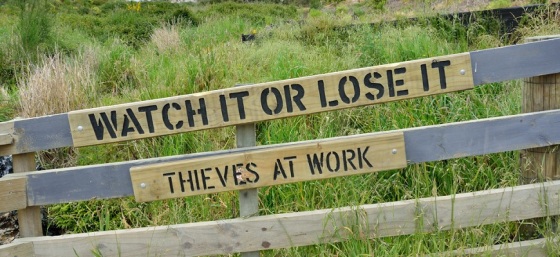
The other day I smiled when I saw a friend put a post on Facebook that included a Creative Commons attribution. He was the person who taught me how important it is, just from the perspective of respect, to get permission before posting another person’s work on your social media page. This was before I studied and fell in love with copyright.
Now, it warms my little lawyer heart to see someone respecting copyright.
And I finally have time to read Gary Vaynerchuk’s book Jab, Jab, Jab, Right Hook, which is filled with helpful information on how to market your business and excellent demonstrative case studies. One of his lessons is to use each platform to suit the needs to the users. So if a site is visually-focused, like Facebook or Pinterest, you want to create posts that have images that will provide users value and hopefully they’ll share them. His book has great examples of how companies are doing this effectively and what habits you shouldn’t emulate.
This is when the red flag went up for me.
If a company’s marketing department created a photo, there’s no problem with copyright. But if a company is using someone else’s photo (because companies don’t just have to talk about themselves online), they have to deal with the question of whether they have permission to use the image in question.
A lot of companies appear to be thoughtful about making sure they are using their own photos or finding images via Creative Commons for their website or blog. However, they don’t apply the same standards to their social media posts. If you’re doing this, and pulling images from other site without getting permission from the copyright owner, you could be setting your company up to be accused of copyright infringement and face a cease and desist letter, a DMCA takedown notice, a bill, or possibly a lawsuit.
 I’ve been inspired by people who use social media effectively and find amazing images to incorporate into their posts. I hope to create more content on social media that’s worth sharing. If you’re in my boat, please make sure to use images you own or use Creative Commons. When I use Creative Commons, I only pull images that come with a license that let me modify (aka crop them) and commercialize them. And even on social media, give your photographer the attribution. You may be legally obligated to do it, and it’s also a sign of respect for their work.
I’ve been inspired by people who use social media effectively and find amazing images to incorporate into their posts. I hope to create more content on social media that’s worth sharing. If you’re in my boat, please make sure to use images you own or use Creative Commons. When I use Creative Commons, I only pull images that come with a license that let me modify (aka crop them) and commercialize them. And even on social media, give your photographer the attribution. You may be legally obligated to do it, and it’s also a sign of respect for their work.
If you need an effective legal resource written in layman’s terms on this topic, I recommend my book, The Legal Side of Blogging: How Not to get Sued, Fired, Arrested, or Killed. It covers a lot of the major issues that apply to copyright and the internet. If you want to chat more about this topic, feel free to connect with me on Twitter, Facebook, YouTube, LinkedIn, or you can email me.
Please visit my homepage for more information about Carter Law Firm.








